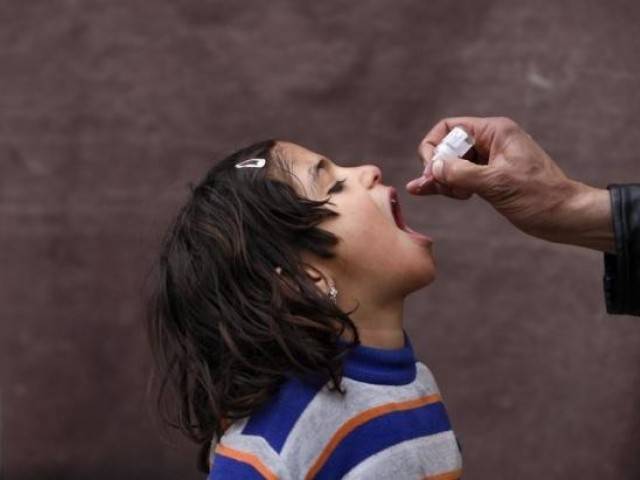LAHORE - With the support of national and provincial experts, 12 high risk districts have devised operational and communication work plan for the upcoming polio low transmission season.
The National Emergency Action planning workshop has employed one-team approach where the whole programme rallied behind these 12 districts of critical importance for polio eradication in Pakistan.
Over the three-day workshop, polio programme partners at all levels worked together to develop district, province and national plans to ensure utmost preparedness for the low season.
The political agents, commissioners and secretaries of Killa Abdullah, Pishin, Quetta (Balochistan); FR Bannu, Khyber, North Waziristan, South Waziristan (FATA); Bannu, Peshawar, Tank (KP); and Karachi Baldia, Karachi Gadap (Sindh) presented their respective work plans to polio eradication partners which were discussed in detail and finalised for the national vaccination campaign on September 14-16.
In her closing remarks, Minister for National Health Services Saira Afzal Tarar said, “The government and partners at all levels should come together to ensure that we see the high season through with optimal level of immunization services and are well prepared for the next low season. Each of us has a role to play in this regard.”
She also praised the polio workers who lost their lives for the noble cause.
The workshop was chaired by Prime Minister’s Focal Person for Polio Eradication Senator Ayesha Raza Farooq. “With district and provincial leadership, and support of our brave vaccinators, the end of polio at the district and UC level is in sight,” she said.
Provincial health secretaries, director generals, coordinators of the Emergency Operation Centres, Army officials, political agents, DCOs, country representatives of WHO, UNICEF, GAVI, BMGF and other partner agencies and technical officials took part in the workshop that was organised by the Ministry of National Health Services in Lahore for the period 27-29 July.
“Even though visible progress was made last year and validation of micro plans, missed children, tracking migrant population, and quality surveillance were specifically focused in the national plan, the risk of continued transmission of polio virus was real and required integrated efforts from all partners,” the minister said.
“The unique problems require solutions and detailed district-wise plans for 12 districts were prepared taking into account the local needs and the plan for coming season has been prepared in light of the lessons learned during the last year.”
Health Services Punjab Director General Dr Zahid Pervaiz highlighted Punjab’s challenges and said that without improving Routine Immunization, sustainable progress could not be made. Appreciating Punjab’s EPI team for their dedicated efforts, he mentioned the innovative use of android technology for staff accountability and offered support to other provinces.
Khyber Pakhtunkhwa Health Secretary Mushtaq Jadoon said the KP government was committed to polio eradication and a strict accountability was being introduced in the system to achieve the dream of a polio free Pakistan.
South Waziristan Political Agent Islam Zeb said that his team had made great strides in polio eradication in since November 2014. “Door-to-door vaccination has been restarted in all cleared areas of the agency,” he said.
Balochistan EOC Coordinator Dr Saifur Rehman said difficult terrain, security situation, and scattered population were the biggest challenges and despite continuous loss of life the teams were working in the most challenging environment in the province.
Sindh’s Provincial Oversight and Coordination Cell Coordinator Shahnaz Wazir said that the provincial government was committing material and human resource to polio eradication efforts in the country.
Thursday, April 18, 2024
Planning national action on polio

Mehwish Hayat says she would like to work with Aamir Khan
9:59 PM | April 18, 2024
'That'll be awesome,' Rohit Sharma on idea of Pakistan vs India Test series
9:17 PM | April 18, 2024
Turkiye commends Pakistan's efforts in fostering regional peace
9:03 PM | April 18, 2024
CM Maryam's security squad hits biker to death in Narowal
9:02 PM | April 18, 2024
Hafiz Naeemur Rehman sworn in as new emir of Jamaat-e-Islami
8:54 PM | April 18, 2024
Hepatitis Challenge
April 18, 2024
IMF Predictions
April 18, 2024
Wheat War
April 18, 2024
Rail Revival
April 17, 2024
Addressing Climate Change
April 17, 2024
Justice denied
April 18, 2024
AI dilemmas unveiled
April 18, 2024
Tax tangle
April 18, 2024
Workforce inequality
April 17, 2024
New partnerships
April 17, 2024
ePaper - Nawaiwaqt
Advertisement
Nawaiwaqt Group | Copyright © 2024





